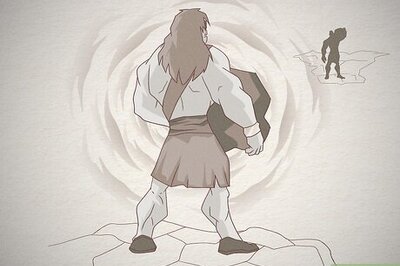
views
ZAGREB: Besides fighting COVID-19, Croats learnt last year how nature could show its brutal face as two devastating earthquakes left them struggling to repair their homes and living in fear of further shakes.
In March, one person was killed in a 5.3 magnitude quake that rattled Zagreb. Seven people lost their lives in a 6.4 magnitude quake that hit Croatia in December with the epicentre some 50 km (30 miles) southeast of the capital.
The earthquakes caused huge material damage that is still being assessed. Croats are having to get used to continuing aftershocks and are facing problems in funding the reconstruction of their homes.
Dragica Vrataric had not managed to fully repair her damaged flat in central Zagreb from the first quake when the second one made the situation even more desperate.
The authorities have promised help, but the complex bureaucratic procedures to get financing to repair the roof and chimneys left her building without a gas supply, heating and hot water for almost a year. The cold weather that hit Croatia this month have not helped.
“It is all very stressful. We must participate in financing repair works with 20%, but there is an excessive paperwork to get funds. Now even a smaller earthquake could cause further damage. We cannot wait for so long,” she said.
As seismologists warn the aftershocks could be felt for months, a key problem is that many houses are too old.
“We must focus on building earthquake-resistant structures as a preventive measure. Most of our cities and villages have buildings whose construction is not like that,” said Kresimir Kuk from the state seismological institute.
Funding is not the only problem which holds back the pace of reconstruction. Relative poverty in comparison with more affluent European Union peers and lack of knowledge about financial matters mean that too many buildings are not insured against earthquake damage.
About 90% of Croats live in the property they own, but less than 25% have earthquake insurance.
“A demand for such insurance after the March earthquake has risen, but not to an extent we would have expected. Financial and insurance literacy need improving,” said Lukas Oliver Pavic from Allianz, a leading insurer.
Disclaimer: This post has been auto-published from an agency feed without any modifications to the text and has not been reviewed by an editor
Read all the Latest News, Breaking News and Coronavirus News here




















Comments
0 comment